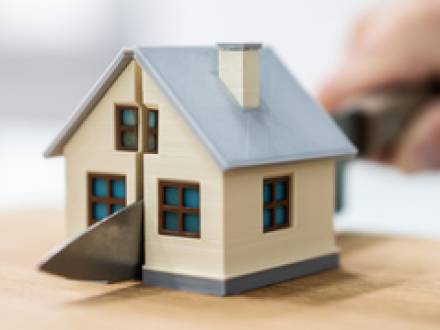Who Gets to Stay in Our House During the Divorce?
 For many couples, one of the hardest questions at the start of a divorce is what to do about their living situation. Living apart from your spouse may seem like the obvious next step, but, as nice as that might sound, the reality is that in 2025, many people cannot afford to pay for two separate households while their divorce is still in progress.
For many couples, one of the hardest questions at the start of a divorce is what to do about their living situation. Living apart from your spouse may seem like the obvious next step, but, as nice as that might sound, the reality is that in 2025, many people cannot afford to pay for two separate households while their divorce is still in progress.
If you are a stay-at-home parent, or if you expect to pay child support or spousal maintenance, you may be worried about whether you can afford to leave. If you cannot afford to leave, you may be worried that a court will order you to leave anyway.
At the Law Office of Vincent C. Machroli, P.C., our Hillside, IL divorce lawyer can help you understand your options for where you might live during your divorce matter so you can approach the divorce process with as much confidence and preparedness as possible.
Do My Spouse and I Have Equal Rights to the Marital Home?
In Illinois, both spouses have the right to remain in the marital home until a court says otherwise. Even if the house is titled or mortgaged in only one spouse’s name, it is still considered marital property if it was bought during the marriage. This means that neither spouse can force the other to leave without a court order.
Many couples try to continue living together during divorce for financial reasons. However, doing so can be very difficult, for both adults and children. If conflict or tension becomes unbearable, it may be necessary to explore other options.
Can the Court Make One of Us Leave Our Home in a Divorce?
There are situations where one spouse can be required to leave the home before the divorce is finalized. Under Illinois law, a judge can grant one spouse "exclusive possession of the marital residence" (meaning only one spouse can live in the home) if remaining together would jeopardize the physical or mental well-being of either spouse or of the children.
In more serious cases involving abuse or threats, a court can also issue an "Order of Protection", which can require an abusive spouse to leave the home immediately. These orders can sometimes also restrict contact and create temporary custody and financial arrangements.
Note that while "Orders of Protection" can often be effective, they are not entirely foolproof, and can sometimes make a situation worse. If your situation involves domestic violence, you need to speak with a lawyer as soon as possible. You do not have to face these issues alone, and there are legal protections available to help you and your children stay safe. Meeting with an attorney is confidential, even if you do not end up hiring that attorney.
Deciding Whether to Move Out During a Divorce
Before deciding to move out on your own, talk to your attorney. Leaving the home can affect your short-term finances, as well as your negotiating position in later property division discussions. It does not mean you lose your right to the house, but it can make it harder to argue that staying there is necessary for you or your children.
Sometimes, moving out temporarily is still the best option for everyone’s well-being. If you and your spouse are having constant, high-intensity fights, then finding a calm place to live can make the divorce process easier and healthier. Your attorney can help you decide which option is right for you.
Talk to an Oak Park, IL Divorce Lawyer
Your living situation deserves careful attention before, during, and after your divorce. At the Law Office of Vincent C. Machroli, P.C., our Hillside, IL divorce attorney has 4 decades of experience helping clients figure out difficult issues during divorce, including where they will live.
Call 708-449-7404 today to learn what steps you can take to get the stability and peace of mind you need during your divorce. We offer no-charge legal consultations.

















